5. Wheels on Meals (1984)
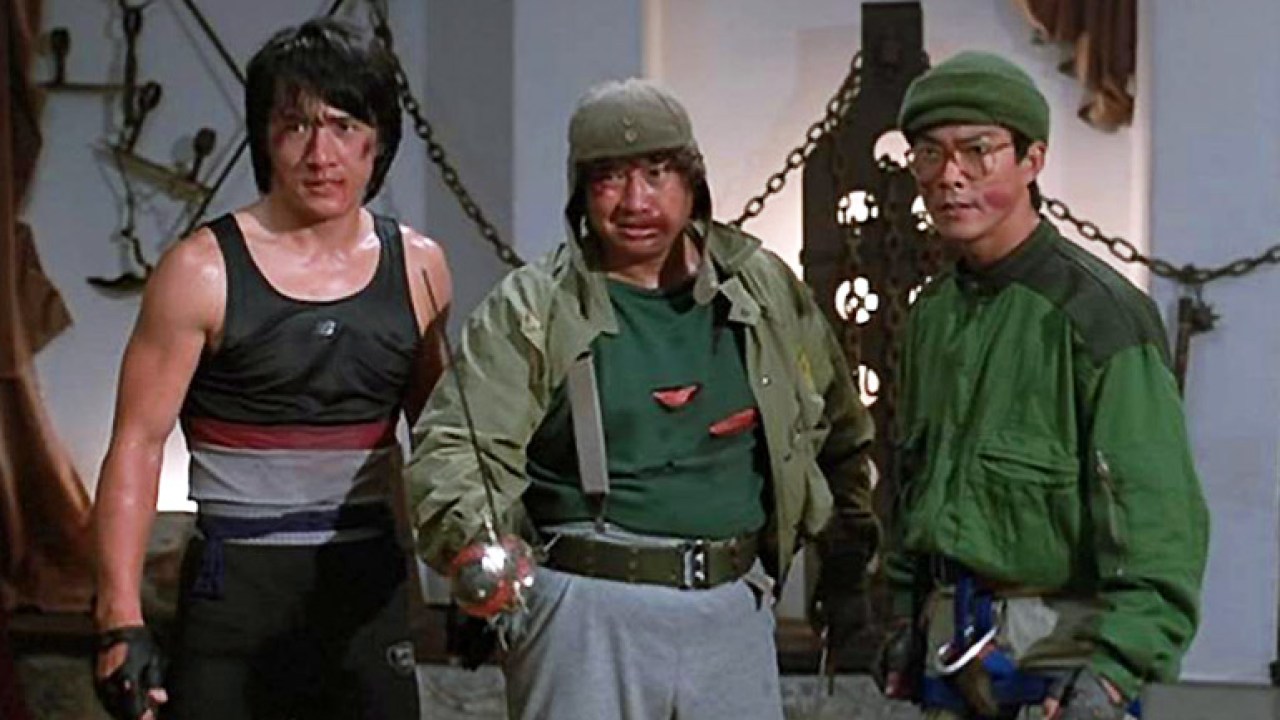
Another Jackie, Yuen and Sammo picture (this one directed by the latter) “Wheels on Meals” is considered by many Hong Kong action cinema fans to be the peak of their collaboration, and for good reason.
Both in martial arts and in comedy, timing is everything; as far as jokes are concerned, the reason is obvious and well publicized, but with fighting choreography, it’s equally as essential though not often discussed. Chan himself has said that rhythm is the most important element of a fight scene; the exact time a punch or a block lands is paramount, something that the viewer may not be consciously aware of when watching a combat but will definitely miss, instinctively, when it’s not there.
In that sense, “Wheels on Meals” truly is a masterclass. Sammo Hung’s skill at integrating comedy and action has never been better than here; the way this film fluctuates seamlessly between genuinely sweet moments of character bonding, slapstick gags, bone-crunching kung fu, and all of this at the same time is staggering. Of course, he’s aided by the skill of the performers (including himself), the main of whom is, naturally, Jackie Chan – his final one-on-one fight with Benny Urquidez is one of the best ever put to the screen.
4. Project A (1983)
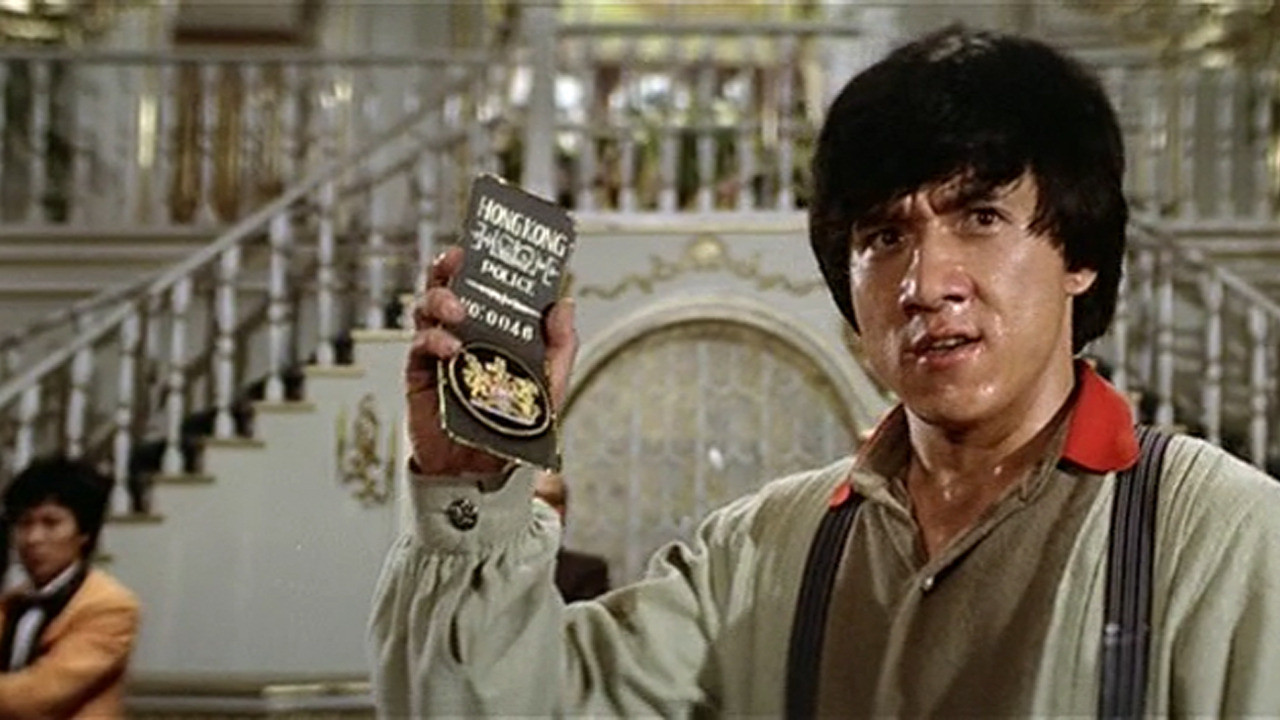
All that being said, “Project A” takes the cake as the very best Jackie Chan, Sammo Hung and Yuen Biao film because nothing can beat this film’s sheer pulpy appeal, silly grandiosity, and the power of Chan’s star presence.
The key difference between “Project A” and his other collaborations with the two performers is that this movie (not coincidentally directed by Chan himself) is not an ensemble picture – it’s very much a Jackie Chan vehicle in which Hung and Biao play supporting parts. If this seems egotistical compared to Hung’s generosity in sharing the spotlight, the film itself is actually a testament to how much Chan is willing to put himself through the wringer for an audience’s entertainment.
That’s another key component of Chan’s longevity and universal appeal: he’s one of the rare action stars who absolutely does not care about looking cool. He’s possibly the person who has been punched, kicked, and all around physically punished the most out of any martial artist. And “Project A” is one of the greatest testaments to his masochism; the stunt work in some of the sequences defy belief and the choreography is impossibly creative.
3. The Legend of the Drunken Master (1994)
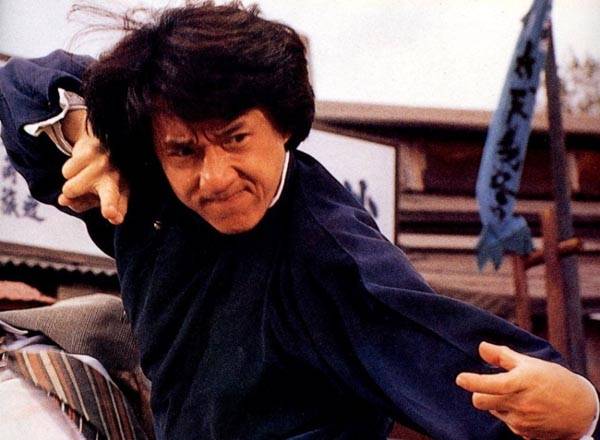
A sort of sequel in name only to the earlier classic, “The Legend of the Drunken Master” has basically nothing to do with Yuen Woo-ping’s film, but comparing the two makes for a fascinating case study in the evolution of Hong Kong kung fu cinema.
The first “Drunken Master,” as previously said, is a very simple, streamlined flick in the spirit of Shaw Brothers; whereas this is a surprisingly politically-minded historical epic, equally concerned with feats of athletic prowess and with a pointed critique of the evils of colonialism.
Jackie Chan has never been more political, before or since, which is one of the many reasons this is one of the single most distinguished pictures of his career; along with it being a much more ambitious craft, be it in the lavish production design, detailed costumes, or the rigorous compositions of the cinematography. The reason for this uncommon ambition has something to do with who was at the helm.
Lau Kar-leung is the definitive Hong Kong martial arts director and choreographer of all time, the greatest to ever do it, and “The Legend of the Drunken Master” was his last masterpiece. Famously, he and Chan were constantly at odds during filming, to the point that Lau was allegedly fired, at which point Chan took over directing duties. Whatever the case, this tension is clearly to the benefit of the finished product: this meeting of titans resulted in the most staggering fight choreography ever captured on film, which hasn’t yet been surpassed.
2. Police Story 3: Supercop (1992)
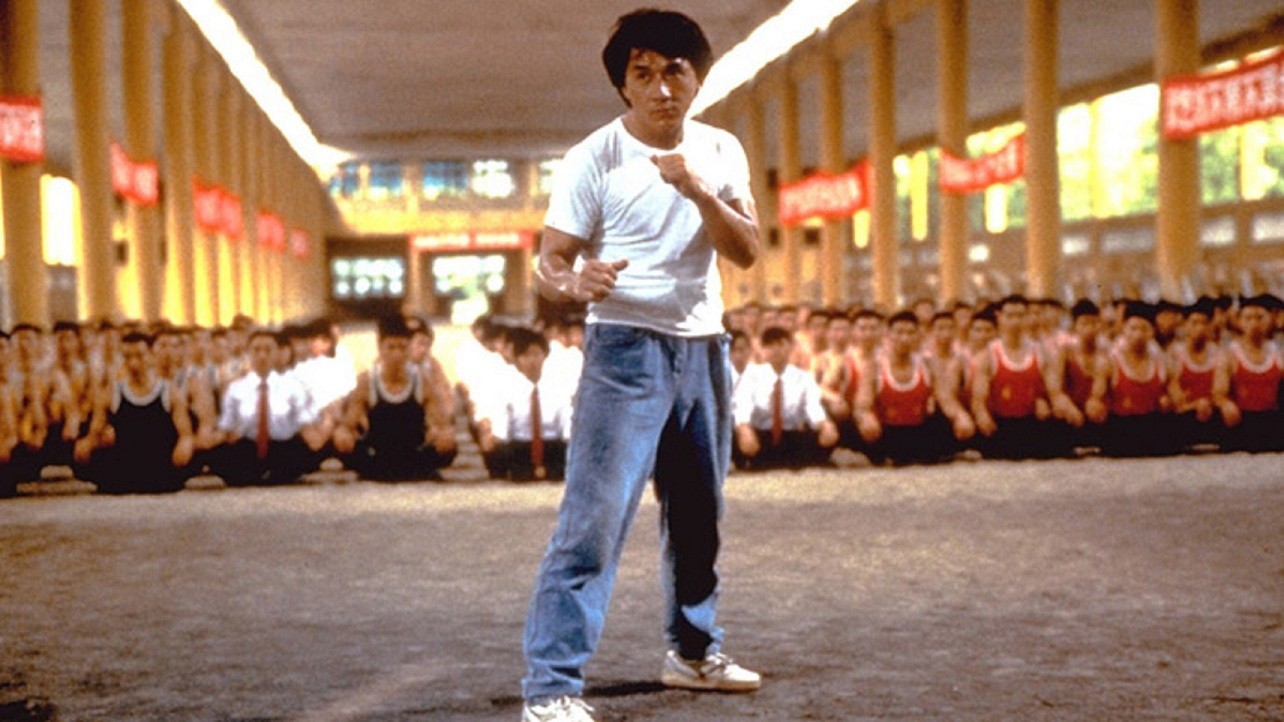
Once, in a director’s roundtable, Quentin Tarantino and the filmmakers present were asked which moment in film history they would choose to preserve in a time capsule for the future of humanity in case everything else disappeared. Tarantino picked the final climatic set piece of “Supercop,” saying, “That’s a sequence that aliens could see and they would be amazed at what they saw … that would be a demonstration of what cinema could do.”
Everyone else at the table laughs at Tarantino’s choice, either taking it as a joke or in frank mockery of his taste. Either way, the joke is on them: it’s virtually impossible to watch the final 15 minutes of Stanley Tong and Jackie Chan’s masterpiece and not be consumed by an overwhelming sense of awe at what these performers are willing to do and the skill they have at pulling of the most irresponsibly insane ideas imaginable.
It’s basically worthless trying to explain why this is such an impossibly entertaining, adrenaline-inducing film, so suffice to say: simply watch it and be amazed at everyone involved. A shout out specifically goes to Michelle Yeoh, one of the best Hong Kong action stars of all time, who is every bit as accomplished as any of her male counterparts but not as famous. Once you see dangling from a bus or landing on a train from a speeding motorcycle, you won’t forget her again.
1. Police Story (1985)
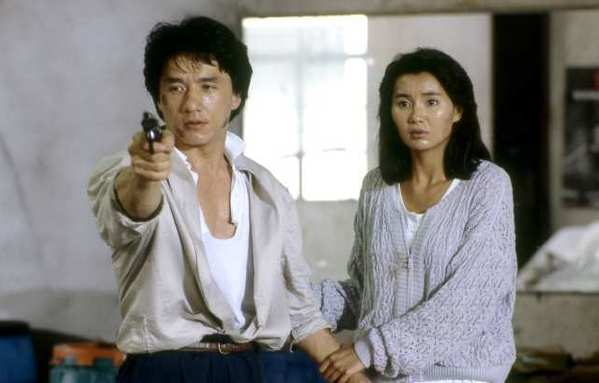
Jackie Chan himself considers this as his best movie, so how can anyone else disagree?
The original “Police Story,” which birthed Chan’s most enduring and successful franchise, doesn’t have the very best fight choreography of his career, like in “The Legend of the Drunken Master,” nor the craziest, most death-defying stunts as in “Supercop,” but there’s a purity to this film that is unmatched: this movie *is* Jackie Chan, it’s his defining work as an auteur (which, make no mistake, he absolutely is).
“Police Story” is Chan operating at the highest level of effort and skill, both as a performer and as director: here’s an artist who will not settle for having a single scene in his movie, not even the most standard expository stuff, that doesn’t achieve its maximum potential for comedy or action – or both.
A simple scene of Jackie answering a phone becomes a Keatonesque series of physical gags that is an incredible stunt in and of itself; a breakup scene has to finish on a dangerous motorcycle jump; a chase in a shopping mall becomes a rampage of shattered glass and broken bones. The commitment to doing the best possible version of everything is almost moving, Chan lays it all out on the screen and he does it for us.